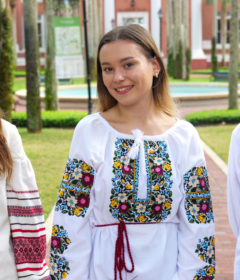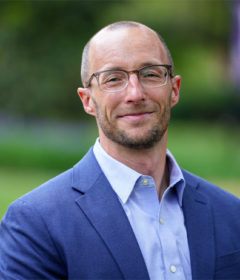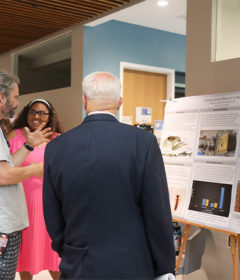Mitigating Climate Change – Examining Viable Options
Does putting particles or mirrors in space to reflect sunlight sound like science fiction, or may it be a viable technological option for mitigating ongoing climate change?
Can the potential implementation of climate geoengineering effectively safeguard our planet’s climate, or will it simply create more environmental concerns?
Those are two of the pressing questions to be addressed on Thursday, March 30, during the seminar “Into the Great Wide Open: The Potential Promise and Perils of Climate Geoengineering.”
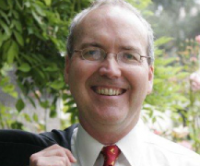
Wil Burns, Ph.D., co-executive director of the Forum for Climate Engineering Assessment at American University, will present a balanced look at engineering options to mitigate climate change, beginning at 4 p.m. in the duPont-Ball Library, Room 25L, on Stetson’s historical campus in DeLand, Florida. An informal dialogue session follows at 5 p.m., designed to accommodate students who want to talk more about science/policy interfacing in related academic, governmental and career settings.
All members of the Stetson community are invited to attend, including those with nonscientific backgrounds. Song Gao, Ph.D., associate professor in the Chemistry Department at Stetson, invited Burns and serves as host and facilitator.
“According to current scientific analyses,” says Burns, “the world is on course for continued warming for centuries after GHG [greenhouse gas] emissions are stabilized. This could have disastrous consequences for human institutions and natural ecosystems, including massive sea level rise, substantial diminution of biodiversity and potentially catastrophic declines in agricultural production.”
As a result, he explains, a series of potential mitigation responses – climate geoengineering – is gaining increased attention, with methods that include ocean iron fertilization, marine cloud albedo enhancement and stratospheric sulfate injection, among others. Yet, Burns cautions: “While these schemes could help the world combat climate change, they also could have serious negative ramifications, including alteration of marine ecosystems and threats to food security.”
Gao anticipates a mesmerizing lecture and lively discussion afterward.
“The current climate change has an unmistakable human contribution, as seen from observational evidence worldwide and mathematical simulations based on fundamental physics, chemistry and climate science,” Gao comments. “The real dilemma is, while humans have played a major role in facilitating this warming, humans can also play active roles in mitigating climate change by reducing GHG emissions and, in dire scenarios where warming gets extreme, considering the options of geoengineering. This is what Dr. Burns will outline with a thoughtful discussion across scientific, policy and social aspects in layman’s terms. We think this will be a fantastic opportunity for our students and campus members to engage in a timely topic of global and local significance.”
Burns also is co-chair of the International Environmental Law Committee of the American Branch of the International Law Association. Previously, he was director of the Energy Policy and Climate Program at Johns Hopkins University. He has published nearly 100 academic papers and co-edited four books in areas of climate geoengineering science and governance, European Union’s Emissions Trade System, and the loss and damage mechanism of the Paris Agreement.
Cultural credit is offered.
For more information, email Song Gao at [email protected].
Into the Great Wide Open: The Potential Promise and Perils of Climate Geoengineering
Seminar presented by Wil Burns, Ph.D., Co-Executive Director, Forum for Climate Engineering Assessment, American University
Thursday, March 30
Stetson University, DeLand, Florida
duPont-Ball Library, Room 25L
Seminar, 4-5 p.m.
Informal Dialogue, 5-5:45 p.m.

